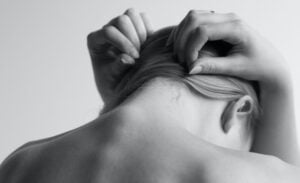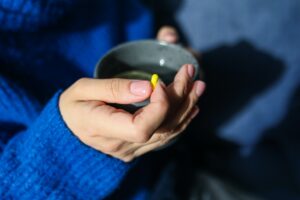Drug and Alcohol Rehab in France
Anyone struggling with addiction in France or who’s looking to recover abroad will be relieved to know that the country offers a wide range of at-home and residential treatments.
In the past few years, there’s been a revolution in terms of Frances’ drug and addiction policy.
In 2016, they even opened their first supervised injection site, a space where addicts can safely manage their addictions with clean syringes.
It seems like this might be needed, as, in 2019 there were 210,000 high-risk heroin users.
In 2020, the number of people using ecstasy, GHB, MDMA, nitrous oxide, poppers and LSD stood at 8% for men and 4% for women.
Use doesn’t always lead to addiction. But an increase in drug use will inevitably lead to more issues developing, meaning more people will eventually need help.
Here, we have a guide to drug and alcohol rehab in France. This will hopefully give you the information you need to start your healing journey if you do need to reach out for help.
Please call our 24-Hour Helpline: 0800 140 4690.
How much time will I spend at drug and alcohol rehab in France?

This might be one of the first questions you ask. On a practical level, if you’re entering any process, it’s natural to wonder how long it will take you.
Unfortunately, this can’t be answered easily. Depending on various factors, it could take any time from a month to a year.
Aspects that can decide this include the severity of your addiction, how well your initial treatment goes and the kind of treatment you end up going through.
Although we don’t recommend focusing on it too much, as it can distract from recovery in the long run, this is definitely something you should bring up in initial treatment discussions if you’re concerned about it.
Please call our 24-Hour Helpline: 0800 140 4690.
Physical vs psychological addictions

Addiction is a disorder with two sides: physical and psychological. The psychological symptoms that come along with addiction are mainly withdrawal symptoms like anxiety and agitation.
These typically occur alongside more general mental cravings, which can be difficult to overcome.
Physical withdrawal symptoms like nausea/vomiting, insomnia, fatigue and tremors can also be a huge barrier to recovery.
Some severe addictions can even come with hallucinations and seizures, which is why we never recommend detoxing alone without professional support.
Speaking of detoxes, we have more information on them below.
Please call our 24-Hour Helpline: 0800 140 4690.
Types of therapies

During drug and alcohol rehab in France, as well as physical detoxes, you’ll likely encounter many mental health treatments. These include:
- Cognitive Behavioural Therapy – Often shortened to CBT, this is a kind of therapy that focuses on cognitive distortions. These toxic thinking and behaviour patterns can often limit recovery if they’re not looked at, so this is an important part of the process.
- DBT – Dialectical behavioural therapy is based on cognitive behavioural therapy, but with more of a focus on controlling emotions
- Contingency management – This mental health treatment reinforces patients through a reward system.
- Motivational interviewing – Finally, motivational interviewing encourages you to change your life and your behaviour through a series of non-judgmental questions.
- Alongside this, there’s also art therapy and music therapy, which allow you to express yourself creatively and where you simply sit down and talk to a therapist.
Please call our 24-Hour Helpline: 0800 140 4690.
The detox process

Before you get started on any mental health treatments, we first must deal with the physical side of your addiction. As we mentioned earlier, this is primarily done via the detox process.
More specifically, we’ll reduce your intake of whatever you’re addicted to, usually over a period of about three weeks, give or take.
The main difference between detoxes for drugs and alcohol is the withdrawal symptoms that occur for each.
For example, heroin and alcohol addictions often cause more physical symptoms, while the withdrawal symptoms of cocaine are mostly psychological.
Please call our 24-Hour Helpline: 0800 140 4690.
Dual diagnosis/co-occurring disorders and addiction

Many people struggling with addiction are also facing dual diagnoses.
The mental health issues that often cause and are caused by addiction can lead to this. And many people find themselves addicted to multiple substances or to alcohol as well as drugs.
If you’re in this situation, please be reassured that there are plenty of resources for you at most organisations.
In addition, most of the mental health treatments used for addictions are also used for other issues, and we’re prepared for multiple kinds of addiction too.
Please call our 24-Hour Helpline: 0800 140 4690.
Relapse prevention planning at rehab

The intention of rehab isn’t to fully cure you. Unfortunately, addiction is too large and complex of a condition to just go away. Rehab will, however, give you the tools to manage your addiction and prevent relapse in the long term.
One of the ways this is done is via a specific relapse prevention plan. It’s very important that this is carefully considered, as it needs to suit your exact circumstances. A few significant elements to think about are:
- Any potential triggers and/or cravings
- Any lifestyle changes you might need to make
- Your plan for if you do relapse
- In a similar vein, people to contact if you relapse
Please call our 24-Hour Helpline: 0800 140 4690.
Aftercare & fellowship groups

Addiction treatment generally happens in three stages: detoxification, rehabilitation and aftercare. The last one is a transitional stage, where you’ll hopefully adjust to your new, post-rehab life while continuing to receive treatment.
Fellowship groups and support groups like alcoholics anonymous and narcotics anonymous can also be very beneficial. They allow you to form permanent connections with people who’ve been through the same things as you, which should hopefully also help to keep you on a good path.
Please call our 24-Hour Helpline: 0800 140 4690.
The 12-Step approach to recovery

One strategy we haven’t been over yet is the 12-step approach to recovery. This is mainly associated with alcoholics anonymous but can be applied to pretty much any recovery journey.
The 12 steps are:
- First of all, admit that you are currently powerless and that you need help. This is where almost everyone who learns to manage their addiction starts off. Even if you only admit it to yourself at first, it’s incredibly important to admit that you have a problem in the first place.
- Acknowledging a higher power – This doesn’t necessarily have to be religious. If you’re unsure about that, it can be more about acknowledging something greater than yourself and seeing a bigger picture. This can give a lot of people clarity and a sense of purpose.
- Following on from the previous step, the third step is deciding to turn your life over to that higher power.
- Accountability is also an important part of this process. As such, the fourth step is assessing what you need to fix inside of yourself, your past behaviour, and any mistakes you might have made.
- Admitting said mistakes to yourself, at least one other person and your chosen higher power. After examining your behaviour, the best way to move forward is to first own up to it.
- In the sixth stage, you must prepare to change from your chosen higher power or any other source.
- Ask your chosen higher power to “remove your shortcomings”. Again, this is all a part of the accountability process, of acknowledging where you might have hurt others, even unintentionally, and trying to repair relationships you might have damaged.
- The eighth step is simple and practical: list everyone you might have hurt before starting the process.
- Number 9 is the natural next stage from that: making reparations to those people in whatever way you can.
- Continuing to hold yourself accountable – The entire recovery process is continual, especially as addiction is a lifelong battle. Overall, it’s important that you carry on making progress even after your initial treatment has finished.
- Finally, moving away from accountability, the eleventh step is to see your chosen higher power’s plan for your life, which again connects to the bigger picture we mentioned earlier.
- And finally, we reach number 12: continuing your recovery journey and carrying the lessons you’ve learned to others. When you’ve (hopefully) recovered and have your addiction under control, helping others to go through the same process can be very fulfilling.
Please call our 24-Hour Helpline: 0800 140 4690.
The admissions process into rehab

All you need to do to access drug and alcohol rehab in France is get in touch with Rehab Recovery via our website or our phone number.
We’ll have an initial chat with you to establish the essential facts of your case. This is especially significant as every addiction case is so unique.
We also like to complete a more formal assessment during these initial conversations and then again before you start any treatments to get the finer details down.
Then, you can move on to a detox!
If you’re researching this on behalf of someone else, we can help you too. We have resources for those whose loved ones are struggling with addiction, including interventions.
Finally, Rehab Recovery offers all of the emotional support you could need.
Please call our 24-Hour Helpline: 0800 140 4690.


